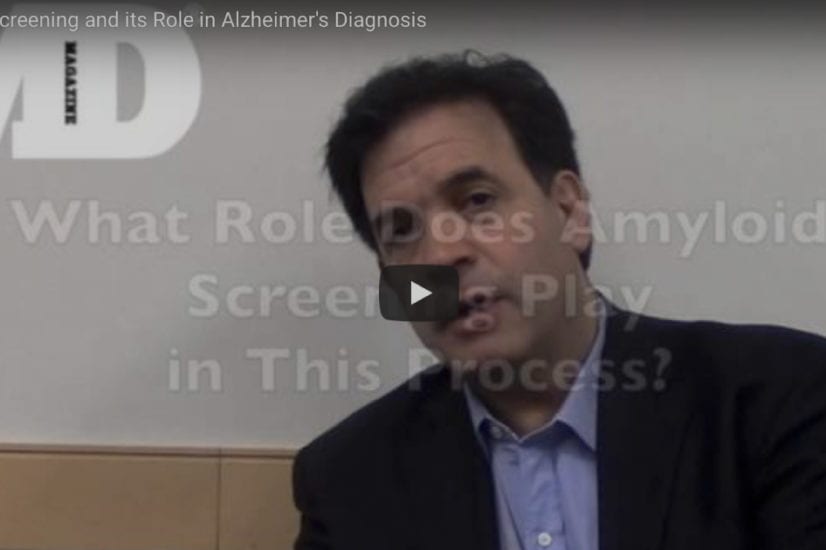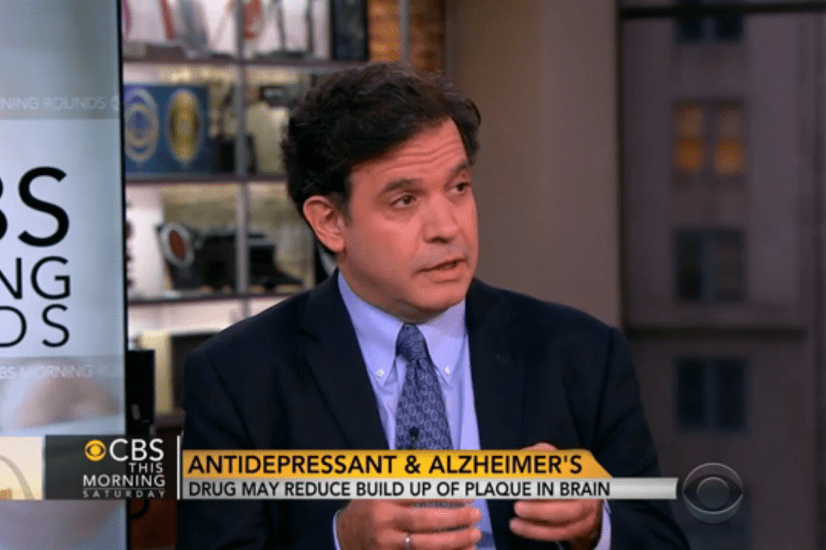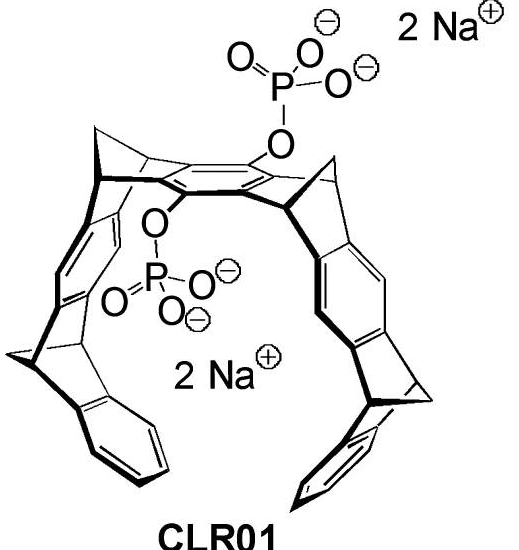
Posted May 19, 2014
Segment on Alzheimer’s disease begins at 3:10.
Last week, many news stories broke about a recent study suggesting levels of amyloid, the sticky substance that builds up in the brain of Alzheimer’s patients, may be lowered by the antidepressant Celexa. Dr. Rudy Tanzi, of Harvard Medical School/Massachusetts General Hospital and chair of Cure Alzheimer’s Fund’s Research Consortium, appeared on the CBS Morning Show to discuss the story.
While the Celexa study certainly points to progress in the search for a cure, Dr. Tanzi emphasizes that this does not mean Alzheimer’s patients should take the drug to treat their condition. Celexa has its own set of side effects, which unfortunately include lack of concentration, memory loss, and muscle rigidity – all problems with which Alzheimer’s patients already struggle. Furthermore, Tanzi explains, taking the drug might be “too little too late” for many patients. Amyloid plaques begin forming many years before symptoms of Alzheimer’s arise, and trigger other aspects of the disease pathology such as tau tangles and inflammation. A symptomatic patient would probably not be able to stop or reverse the disease process by taking Celexa because these other aspects of the pathology are already in place.
Even though Celexa does not necessarily show promise as an Alzheimer’s drug, Dr. Tanzi states that we can learn from this study. By studying the mechanism by which Celexa stops the build-up of amyloid, we may be able to develop drugs that stop the disease in its early stages.





